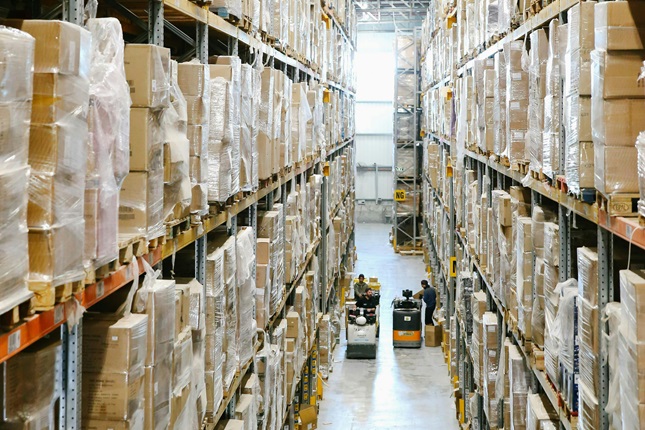Material procurement shouldn’t feel harder than the actual project. But anyone who’s tried sourcing industrial materials knows it often does—vague quotes, unclear lead times, products that don’t quite match what was ordered, and suppliers who disappear the moment something goes wrong. The difference between a smooth procurement process and a frustrating one usually comes down to the supplier, not the material itself.
Good suppliers don’t just sell products. They make the entire process less complicated, more predictable, and ultimately more cost-effective. Here’s what sets them apart and why finding the right partner matters more than chasing the lowest price.
They Help You Specify Correctly From the Start
One of the biggest procurement headaches happens when what arrives doesn’t match what the project actually needs. Sometimes that’s down to ordering errors, but more often it’s because the original specification wasn’t quite right. A decent supplier asks questions before taking the order. What’s the application? What kind of environment will it be used in? Are there weight restrictions or particular durability requirements?
This matters especially for materials with multiple grades and configurations. Take something seemingly straightforward—when evaluating the cost of aluminium chequer plate sheets, buyers need to consider thickness, grade, finish, and size, all of which affect both price and performance. A supplier worth working with will walk through those variables rather than just processing whatever gets requested. They’ll point out when a less expensive option would work just as well, or when spending a bit more upfront prevents problems later.
Getting the specification right the first time eliminates the costs and delays of returns, replacements, or making do with something that’s not quite fit for purpose. That consultation at the beginning saves far more than it costs.
Transparent Pricing That Actually Makes Sense
Pricing shouldn’t require a detective to decode. Good suppliers provide clear, itemized quotes that show exactly what’s included—material costs, any cutting or fabrication charges, delivery fees, and lead times. When everything’s spelled out, it’s much easier to compare options, make informed decisions, and get budget approval without guesswork.
The problem with vague pricing is it tends to hide complications. A rock-bottom quote might not include delivery, or it might be based on material that’s perpetually out of stock, or there might be minimum order quantities buried in the fine print. By the time those details surface, the project timeline’s already been set and changing suppliers becomes a bigger hassle than just accepting the inflated final cost.
Transparent suppliers put all those details upfront. There’s no excavating terms and conditions to figure out what’s actually being offered. That clarity builds trust and makes the procurement process run smoother for everyone involved.
Reliable Delivery and Realistic Lead Times
Nothing derails a project schedule faster than materials that don’t show up when expected. This is where suppliers separate themselves—not just by promising fast delivery, but by giving realistic timelines and actually hitting them. A supplier who says three weeks and delivers in three weeks is far more valuable than one who promises next week and shows up a month later.
Good suppliers also communicate proactively. If there’s a delay with the mill, if weather’s affecting transport, if there’s any reason the delivery window might shift, they get in touch before it becomes a crisis. That advance notice gives procurement teams time to adjust schedules, notify contractors, or make alternative arrangements rather than discovering the problem when materials fail to arrive.
They also understand that different projects have different urgency levels. Sometimes paying extra for expedited delivery makes sense. Other times, a longer lead time with a better price works perfectly fine. The flexibility to accommodate both situations, with honest guidance about what’s realistic, makes planning much easier.
Technical Support When You Need It
The best suppliers employ people who actually understand the products they’re selling. When questions come up—and they always do—there’s someone knowledgeable on the other end of the phone who can provide real answers, not just read from a spec sheet.
This becomes particularly valuable when dealing with technical materials or unfamiliar applications. What’s the best way to install this? What fixings work best? How should it be maintained? Can it be welded, and if so, what’s the technique? Suppliers with proper technical support can answer these questions or connect buyers with someone who can. That expertise prevents expensive mistakes and helps projects go more smoothly.
It’s also worth noting that good suppliers stand behind what they sell. If something’s genuinely wrong with the material—manufacturing defect, incorrect specification, damage in transit—they sort it out without endless back-and-forth or trying to shift blame. Problems get resolved quickly because keeping customers happy matters more than winning individual disputes.
Building Relationships That Last
Here’s the thing about procurement: it’s rarely a one-time transaction. Projects come up regularly, needs change, and having a supplier who already understands your requirements and standards makes future orders simpler. There’s no re-explaining everything, no starting from scratch each time, no uncertainty about whether they’ll deliver as promised.
Good suppliers remember past orders, anticipate common needs, and often give better service to repeat customers—whether that’s priority scheduling, volume discounts, or just the benefit of working with someone who knows your preferences. That relationship becomes an asset over time, streamlining procurement and reducing the mental load of sourcing materials for every new project.
What This Means for Procurement Teams
Choosing suppliers based purely on price per unit ignores most of what makes procurement either efficient or frustrating. The suppliers who make the process easier save time, reduce errors, keep projects on schedule, and often end up being more cost-effective overall despite not always having the absolute lowest sticker price.
The goal isn’t finding someone who can sell you material. It’s finding a partner who makes getting the right material, at the right time, with the right specifications, as straightforward as possible. When procurement becomes predictable and reliable rather than stressful and uncertain, everyone benefits—from the procurement team to the project manager to whoever’s actually using the materials on site.
That’s what good suppliers do. They take the complications out of what should be a straightforward process and make it easier to focus on the actual work that needs doing.








































